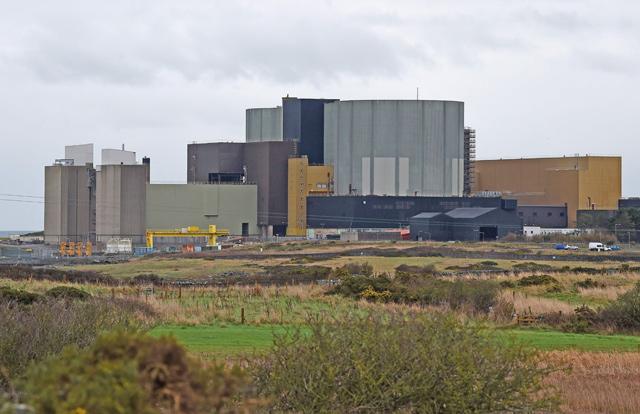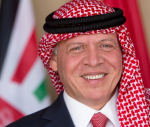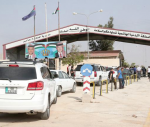You are here
Developing world revives nuclear power prospects
By Reuters - Sep 18,2014 - Last updated at Sep 18,2014
LONDON — Developing nations are leading a revival of interest in nuclear power, say atomic plant builders, but orders remain elusive as more safety features post-Fukushima have inflated investment costs.
Three-and-a-half years after Japan's reactor accident shook confidence, around 25 countries are thinking of turning nuclear to sustain strong growth and provide cleaner and reliable power.
"It's not so much growth in the developed countries but we're seeing a lot of other countries that are wanting to develop nuclear. We're finding money in places we didn't even know existed," Danny Roderick, chief executive of Toshiba-owned nuclear reactor maker Westinghouse, told Reuters at a nuclear industry conference last week in London.
Rival reactor designer GE Hitachi Nuclear Energy, a joint venture between the US and Japanese companies, said it has held meetings with officials from India, Mexico and Vietnam, among others.
Countries as diverse as Bangladesh, Turkey or Jordan, are also considering building nuclear plants and around 160 reactors are expected to come online over the next decade, according to the World Nuclear Association.
On paper, that should provide plenty of work, but the industry continues to lick its wounds in the aftermath of a devastating earthquake in Japan in March 2011, which caused triple meltdowns and hydrogen explosions at Tepco's Fukushima Daiichi nuclear plant.
The accident put a break on much of the world's nuclear plans as governments re-assessed the risks of running nuclear reactors and some, such as Germany, decided to part ways with nuclear altogether.
Looking East?
As of July this year, 67 reactors were under construction globally, with 56 of those in Asia and eastern Europe, according to the World Nuclear Industry Status Report 2014, whose lead authors are industry consultants Mycle Schneider and Antony Froggatt.
For US-based Westinghouse, opportunities in eastern Europe and new orders from China will be key to filling its order book, while GE Hitachi will seek to benefit from interest from nuclear newcomers across the globe.
"There certainly is some interest by some of the emerging markets compared to where we were 10 years ago," Preston Swafford, chief executive of Canadian reactor maker Candu Energy, told Reuters.
France's Areva, struggling with a slump in core earnings, is pinning its hopes on fresh orders for Britain's nuclear new build programme, as well as from Turkey, India and Saudi Arabia.
Russia's recent gas supply restrictions to some European buyers and the threat to oil supplies from conflicts in Iraq and Libya have increased the need for diversified energy supplies, especially in the West.
For Russian state nuclear energy corporation Rosatom, sanctions against Russia amid diplomatic disputes over violence in Ukraine will likely add to its struggle to sell new reactors.
Rosatom's deputy director general of international business and development, Kirill Komarov, told Reuters that emerging markets in South Asia, China, India, South Africa, Latin America and North America will be of high importance over the next 20 years.
Rising costs
However, many countries have scaled back more ambitious development plans and some have been cancelled or halted, Schneider and Froggatt said in the World Nuclear Industry Status Report 2014.
"Construction costs are a key determinant of the final nuclear electricity generating costs and many projects are significantly over budget," they indicated.
The United Nations' atomic agency has cut its projections for nuclear capacity growth to 2030 for a fourth consecutive year, reducing its forecast to 8 per cent for the least optimistic scenario, compared with 17 per cent last year.
The global financial crisis in 2009 had already constrained funding for these huge projects and stricter safety requirements after Fukushima have also pushed up construction costs.
The latest cost estimates have risen to around $8,000 per installed kilowatt (kW) for a new nuclear plant, from $1,000/kW ten years ago, according to the industry status report.
"Fukushima served as a wake up call and it took the industry the past three years to digest and incorporate the lessons learned," said George Borovas, head of the global nuclear practice at law firm Shearman and Sterling.
Related Articles
AMMAN — The International Advisory Group (IAG) on Monday recommended that Jordan choose alternative energy sources that are more sustainable
RIYADH — Saudi Arabia's Cabinet on Tuesday approved the national policy of its atomic energy programme, state media said, as the kingdom pre
LONDON — Japan’s Hitachi on Wednesday scrapped its multi-billion-pound nuclear plant project in Wales in face of the deteriorating investmen
















